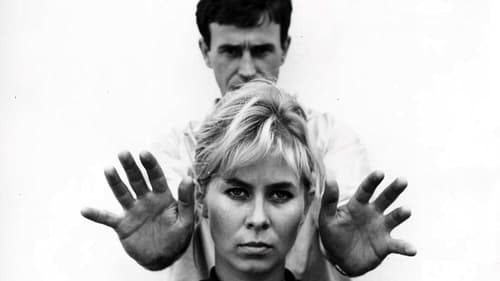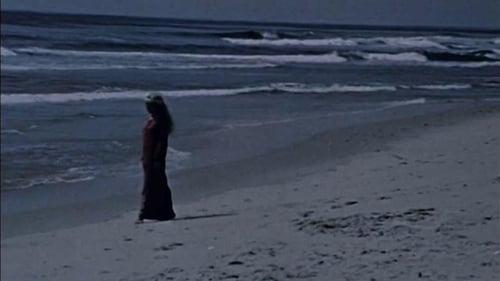Standard Gauge (1984)
Género :
Tiempo de ejecución : 35M
Director : Morgan Fisher
Sinopsis
Standard Gauge is an autobiographical film that examines Morgan Fisher’s work as an editor in the film industry. The film goes through scraps of rejected material along with commentary on the meaning of all the scrapped images. This film is an account and critique of the processes of meaning within film production through an examination of both materialism and the institution of film itself.

A pair of married ex-convicts trying to go straight get jobs at a department store. A gangster who knows about their past threatens to expose it unless they agree to help him rob the department store.

A lyrical recreation of Lightnin’ Hopkins’ decision at age eight to stop chopping cotton and start singing for a living.

Sharits produced Color Sound Frames by rephotographing strips of his previous films. He moved the strips, singly and in pairs, across a light table in front of the camera at various speeds. Sprocket holes of the original strips are visible at the edges of the frame, and the soundtrack of this film replicates the rat-a-tat of silent film sprocket holes played with the sound on. - CMOA

In this child's game, a live-action boy and girl draw characters and compete who is better. The girl draws a flower and the boy draws a car that runs it over. Then a drawn lion chases a drawn girl, until it all becomes frightfully serious.

En la Polonia de los años sesenta, un estudiante de medicina recién graduado sigue los movimientos de una misteriosa mujer, conductora de tranvía, por las calles de una Varsovia comunista conformando un imaginario repleto de una exquisitez insospechada. Sueños y realidad se mezclan con grandes dosis de realismo mágico. (FILMAFFINITY)

In Rembrandt, Haanstra shows that it is possible to make a fascinating film only with images from paintings. He had to travel though all over Europe to numerous museums and private owners in order to film the works of art. In the work of the great painter, Haanstra recognizes his particular interest in man as an individual human being, cutting straight through all the religious motives. And Haanstra also wants to see Rembrandt as an individual.

Royal Scotland is a 1952 short documentary film directed by Gerard Bryant. It was nominated for an Oscar for Best Short Subject, One-Reel.

Photographed by an all-female crew and directed by the author of Sexual Politics, these are autobiographical interiews with three very different women who talk frankly about their lives, conflicts, and contrasting life styles.

An atmospheric portrait of four women who leave the factory where they work to go to the beach.

The Page family lives without electricity or running water deep in the Sussex woods. Amidst ever-growing modernity and industrialization, the family carries out chores, hunts pheasants, builds steam engines, and postulates on man's trip to the moon. They demonstrate fine lateral thinking and, through their particular delivery, display fears and concerns about pollution, intensive farming, mechanization, and self-fulfillment during a time of technological advancement.

La cinta narra la historia de Juan, hombre común de la ruralía, quien es sometido a la confusión de la publicidad comercial. En la misma se reseña el desarrollo de criterio desde que Juan era un niño y cómo fue cambiando mientras éste crece. Juan adulto deja que la publicidad manipule sus decisiones de consumo.

Less and Less, Luc Moullet’s 40th film, concerns development and expansion, from 1968 to 2010, of the devices based on computers, automats, interactive terminals and others that can be found everywhere.

An ailing elderly woman is paid a perfunctory visit by her family while she sits despondently in a nursing home. Nobody can get through to her except for her young grandson, who talks to her about the happy times they shared between the two of them when she was well.

Short directed by Mansour Sora Wade.

The real story of Quilombo Olho d'Água from Serra do Talhado, in the state of Paraíba, Brazil, which became institutionally isolated from the rest of the country. Quilombos were runaway slave communities in colonial Brazil.

A look at the Baath party's project to construct a system of dams.

The Bolivian community settled in Argentina celebrates over two consecutive Sundays in October the festival of their patron saint: Our Lady of Copacabana. Music and dance groups arrive from all over the country and meet in the Charrúa quarter in Buenos Aires. This celebration is the most important event for Bolivian immigrants and goes beyond folklore and religion to become a vibrant meeting place and bring about the cultural cohesion of traditions deeply-rooted in the collective memory of a people.

German war documentary about Yugoslavia from 1941.

Un fascinante mosaico de fotografías nos muestra a los clientes habituales del neoyorkino bar Terminal, desde bebedores compulsivos de clase media trabajadora irlandeses hasta afroamericanos gays, quienes continuamente fueron transformando la vida social del barrio durante los diez años de esplendor del Terminal.

A film documenting the landscapes of northern Iceland, as well as a recent work about the Hudson River.




